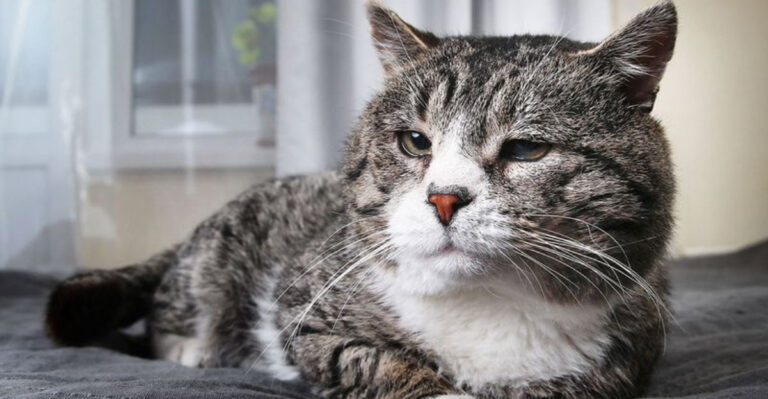15 Reasons Some Cats Are More Anxious Than Others
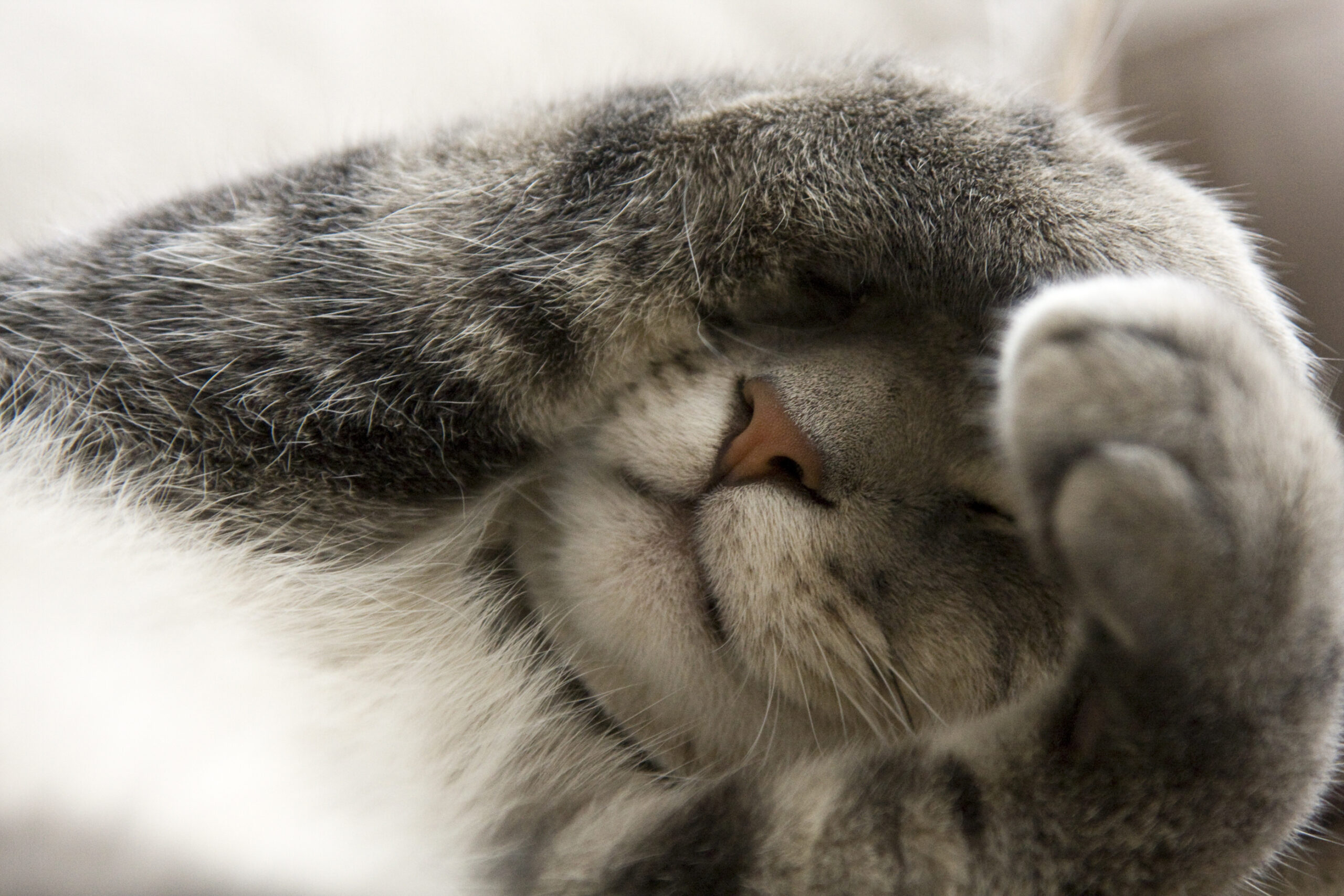
Ever met a cat who acts like they’ve had a few too many espressos? While some kitties are as chill as cucumbers, others are little balls of stress.
So, what’s the deal? Let’s try and uncover some reasons why some cats might be more anxious than others.
1. Early Weaning
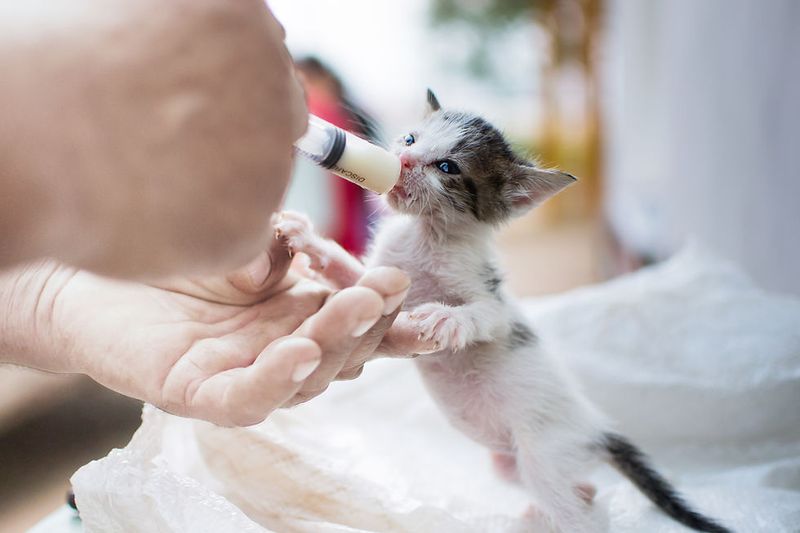
Imagine being taken away from your comfort zone way too soon. Kittens weaned early from their mothers might feel like they’re missing something.
This sudden separation can make them more susceptible to anxiety later in life. It’s like trying to ride a bike without ever learning how to balance.
For these felines, the lack of early motherly guidance can linger, making them less confident in their surroundings. Who wouldn’t be a bit uneasy under those circumstances?
2. Lack Of Socialization

Picture a cat that missed out on socializing as a kitten; it’s like skipping school and missing all the social cues.
Without early interaction with humans and other animals, cats can grow up wary of new faces and situations.
This wariness can manifest as anxiety, especially in bustling environments. It’s not easy to be the life of the party when you’re unsure how to mingle.
Such cats might prefer solitude, hiding away from the chaos of the world.
3. Change In Environment
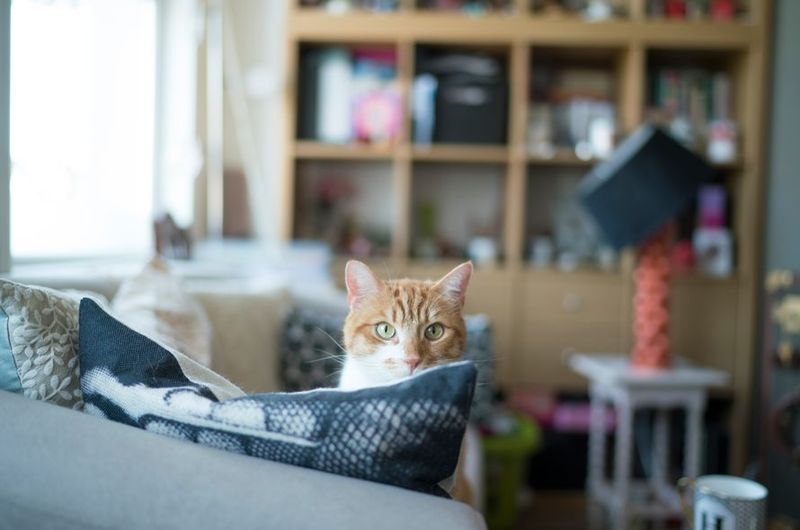
Moving to a new place is no small feat, even for us humans. For cats, a change in environment can be a source of great stress.
New smells, unfamiliar sounds, and unknown faces can make them feel like they’ve landed on another planet. It’s like waking up in a different world, trying to find your bearings.
These environmental shifts can lead to heightened anxiety, as cats struggle to adjust to the unfamiliarity of their new surroundings.
4. Genetic Predisposition
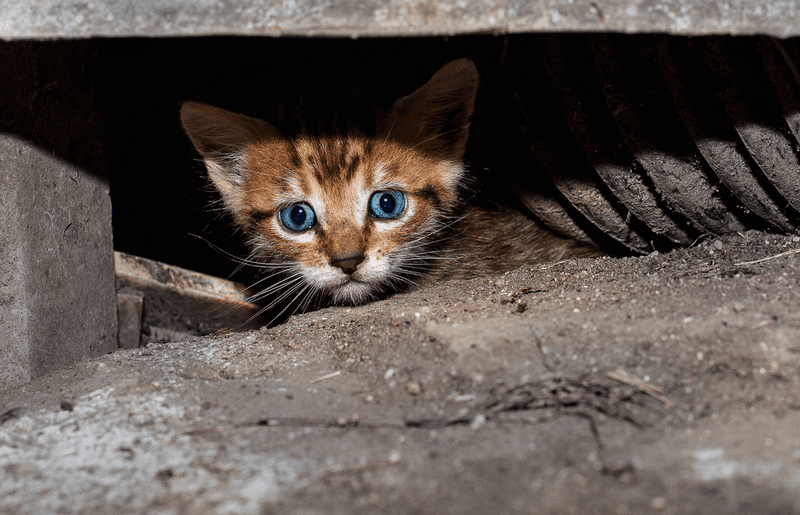
Some cats are born with a natural tendency towards anxiety, courtesy of their genetic makeup. Just like some people are predisposed to be more anxious, certain cat breeds are more prone to nervousness.
It’s all in the genes! This predisposition might make them more reactive to stressors. So, if you ever wonder why that particular breed seems on edge, consider the DNA card.
They’re wired in a way that makes staying calm a tad more challenging.
5. Previous Trauma
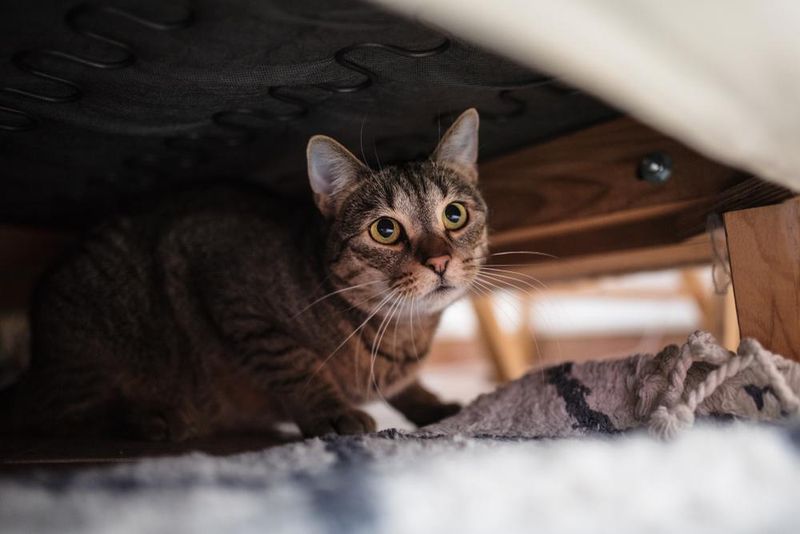
Traumatic experiences can leave a lasting impact on our furry friends. Cats with a history of neglect or abuse may carry that emotional baggage, leading to increased anxiety.
Imagine living in a world where danger lurks around every corner. For these cats, the world can be a scary place, and anxiety becomes a defense mechanism.
Overcoming such trauma requires patience and understanding, allowing them to regain trust at their own pace.
6. Health Issues
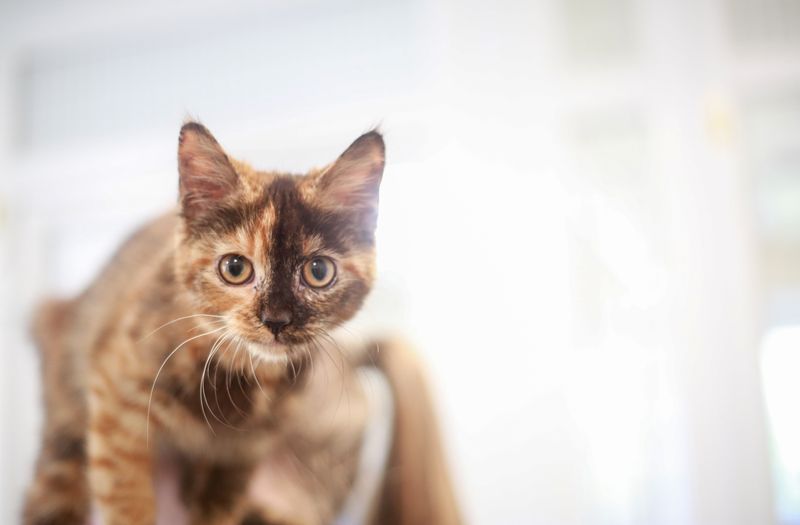
When you’re not feeling your best, it’s easy to get cranky and anxious. Cats with underlying health problems can feel similarly.
Whether it’s an undiagnosed ailment or a chronic condition, discomfort can lead to unease. It’s like having an annoying itch you can’t scratch.
Regular vet check-ups are crucial to rule out any physical causes of anxiety, ensuring your feline friend gets the necessary care and comfort they deserve.
7. Lack Of Mental Stimulation
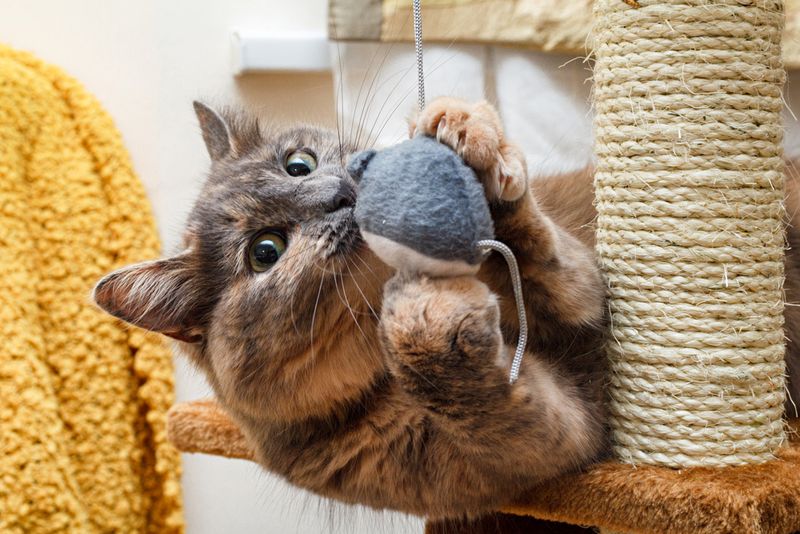
Ever felt restless when you’ve got nothing to do? Cats are no different. A lack of mental stimulation can lead to boredom, which in turn can foster anxiety.
It’s like being stuck in a room with nothing but your thoughts. Providing toys, puzzles, and interactive games can keep a cat’s mind engaged, reducing their anxiety levels.
After all, a busy feline mind is a happy feline mind, and curbing boredom is half the battle won.
8. Inconsistent Routine
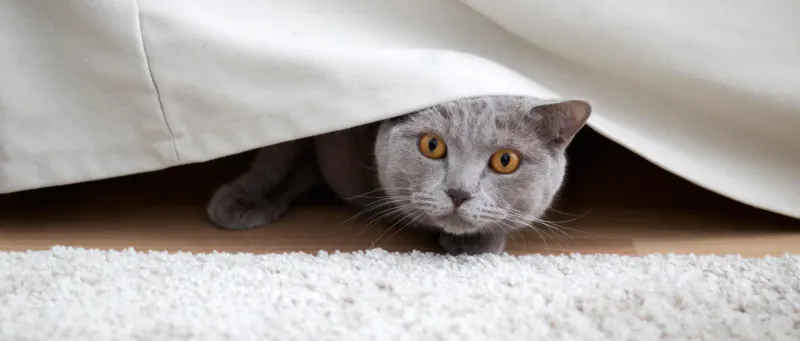
Cats thrive on consistency. When their daily routine is disrupted, it can feel like the world is just a bit off-kilter. Like living in a universe where time doesn’t follow the usual rules.
This inconsistency can throw them for a loop, creating an anxious environment. By maintaining a stable schedule, feeding times, and play sessions, you can help your cat feel more secure.
9. Exposure To Loud Noises
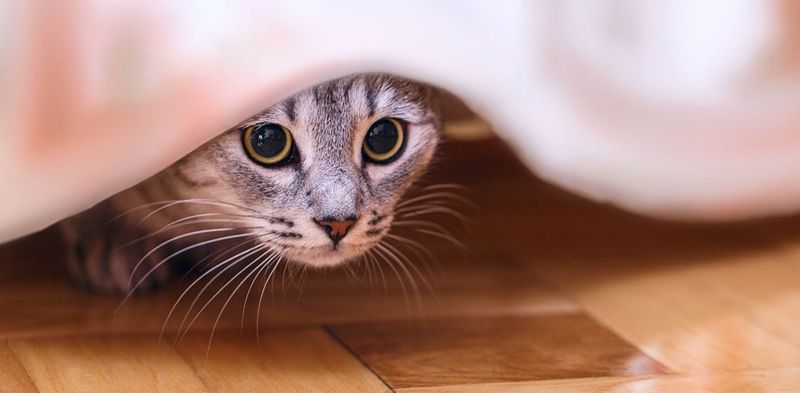
Imagine living next to a never-ending construction site. For cats, loud noises can be downright terrifying. Sudden bangs or ongoing loud sounds can trigger their fight-or-flight response.
It’s a world filled with unpredictable booms and bangs. Creating a quiet and safe space for them can help mitigate their anxiety.
Ensuring they have a haven to retreat to when the world gets too loud is essential for their peace of mind.
10. Separation Anxiety
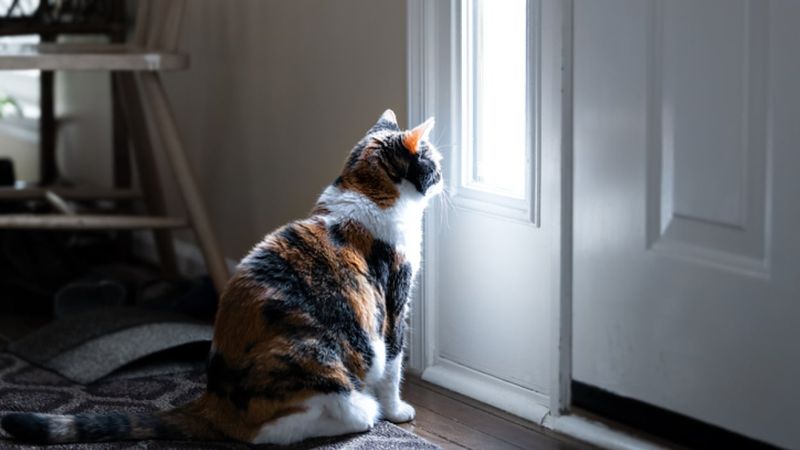
Leaving a cat alone for extended periods can trigger separation anxiety. They miss their human companions, feeling like they’ve been left behind.
It’s akin to waiting for a loved one who never seems to return. This loneliness can manifest as destructive behavior or excessive meowing.
Providing companionship, whether through another pet or interactive toys, can help ease their anxiety. Knowing they’re not truly alone makes a world of difference.
11. Unfamiliar Visitors
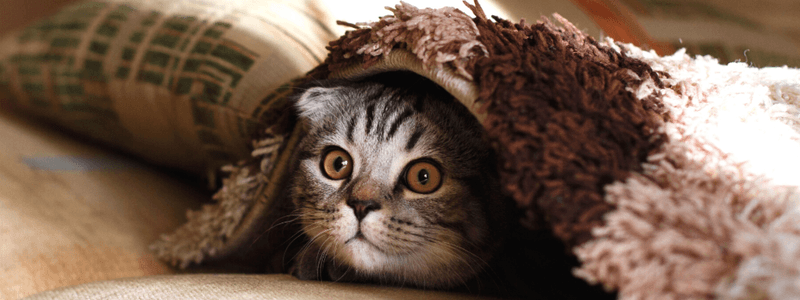
Imagine unexpected guests crashing your quiet night in. For cats, unfamiliar visitors can be a source of stress. Meeting new people or animals disrupts their sense of space.
It’s their turf, and any intrusion can feel threatening. Creating a safe zone where they can retreat during these visits lets them maintain a sense of security.
12. Dietary Imbalances
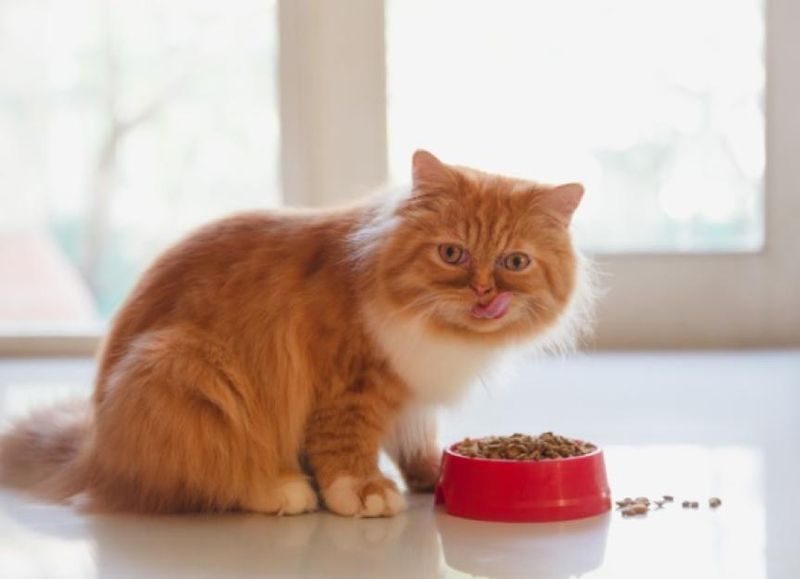
What you eat can affect how you feel, and it’s no different for cats. An imbalanced diet might lead to anxiety, making them feel off. Picture eating nothing but candy for days on end.
Cats need a balanced diet to stay healthy and calm. Ensuring they receive proper nutrition can prevent anxiety from creeping in. A well-fed cat is a content cat, ready to face the world with all nine lives intact.
13. Overcrowding
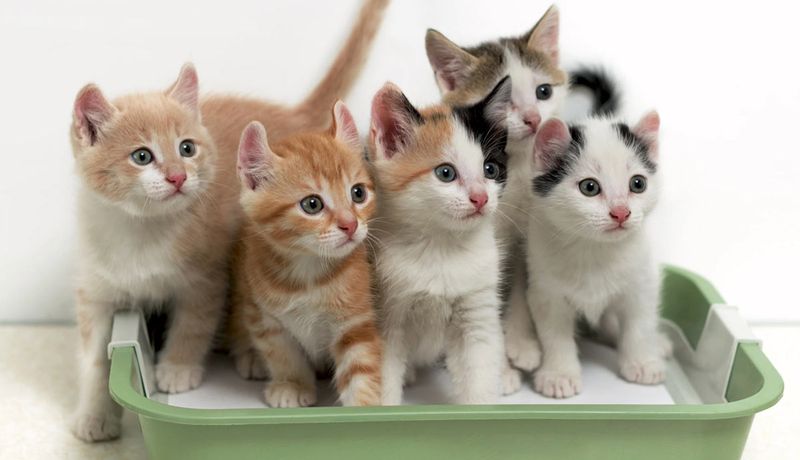
Too many cats in a small space can lead to tension and anxiety. It’s like being at a party where you can’t find room to breathe. Each cat needs their own space, and overcrowding can cause conflicts and stress.
Providing ample territory for every feline ensures peace and harmony, reducing anxiety levels. A bit of personal space goes a long way in keeping your furry friends calm and content.
14. Owner’s Stress Levels
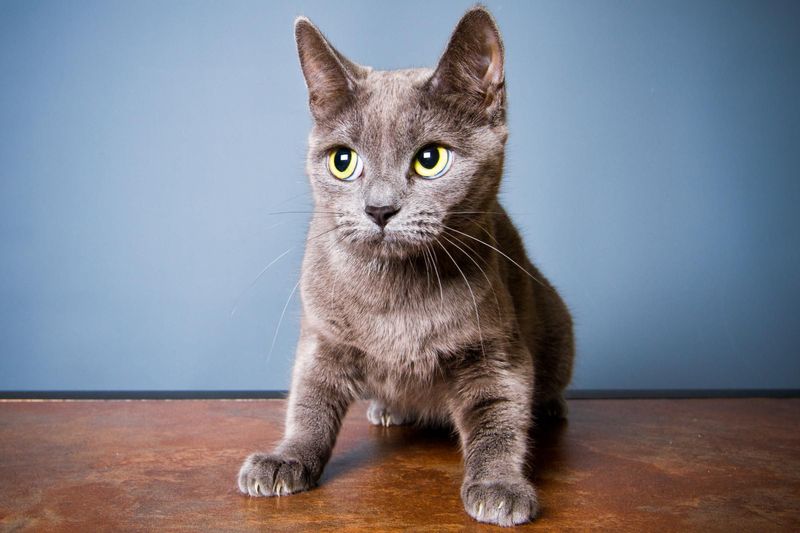
Cats are perceptive creatures, often picking up on their owner’s emotions. If you’re stressed, your cat might be too. It’s like emotional osmosis.
They feel your tension, mirroring it in their behavior. Maintaining a calm and relaxed environment helps keep both you and your cat at ease.
After all, a peaceful home is a happy home, and it starts with you. Finding ways to de-stress can benefit both you and your feline friend.
15. Lack Of Safe Spaces
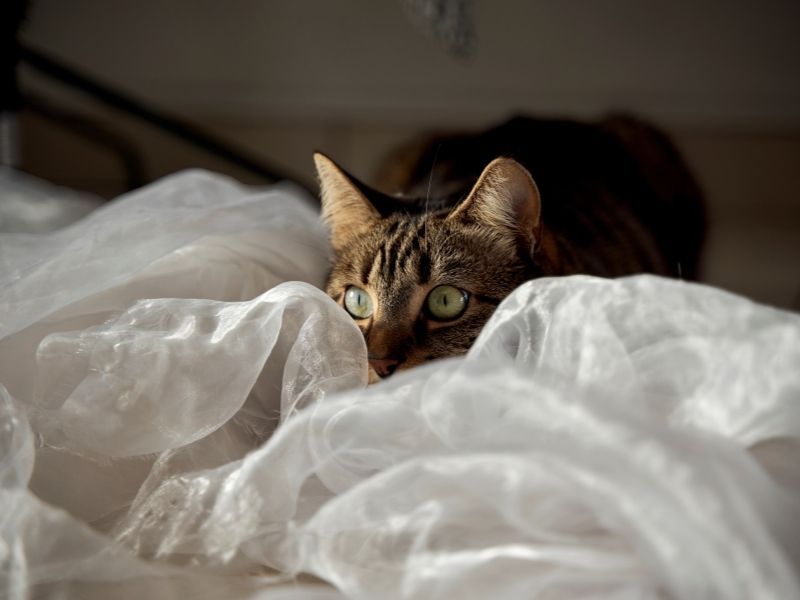
Every cat needs a sanctuary, a place to escape the hustle and bustle. Without a safe space, anxiety can skyrocket. It’s like being stuck in a crowded room with no exit.
Providing hiding spots and cozy nooks gives them a sense of security. Knowing there’s a retreat available can significantly reduce stress levels.
A little hideaway can make all the difference, offering comfort and peace of mind to your furry companion.


